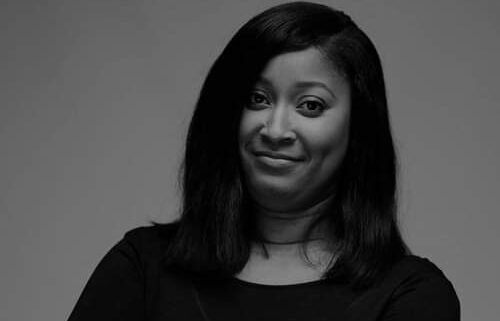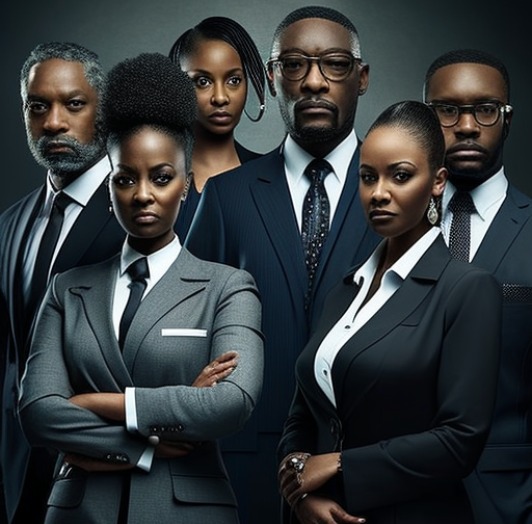I WEAR MANY HATS.

As a psychologist, journalist, strategist, empowerment ambassador and the CEO of several platforms, companies, and a charity; each of them has inclusion, diversity, justice, social cause, and intersectionality at their core.
Essentially, I spend my time primarily helping individuals to tell their stories or realise the power of their voice, and I work to create solutions by analysing what pathways need to be cleared, what change needs to take place, and seek out ways to bridge the gaps.
I am also a Black woman living in the real world which means that like you, I am feeling the heaviness of the times we are living in, even as they tell us that Black Lives Matter ‘has changed everything.’ The post-George Floyd movement has been awe-inspiring, and it has shone a spotlight on the many injustices we as Black people experience. Of course, we know this is just the beginning.
“Fighting racism is about making a commitment to use our abilities to create long-term and systematic change.”
Today my work puts me in a place of privilege, but racism, intersectionality and struggle are far from unknown to me. As we watch our football players kneel down in honour of Black Lives Matter, it’s weird to think that for so many non-Black people, the murder of George Floyd and the events that have followed, has been the first time they’ve actually realized that racism is really happening. Of course, if you’re Black, racism has always been there; systemic, institutionalized, deep-rooted, and prevalent, no matter what part of the world we are in.
In the U.K, the brand of racism we live, is insidious and diaspora here experience thousands of micro-aggressions (and macro!) that we endure every single day. I have travelled the world and experienced racism in many different forms; all are damaging and all stem our growth more than we’d like to admit. All of them work to suppress the remarkable power we hold as one people. Whether its in the workplace, sports industries, healthcare, employment, politics, or media; the odds are usually stacked against us.
Lately, I’ve seen debates on what white people, companies and organisations should be doing to take a stand against racism. What I want to talk about is what we are doing for ourselves, to remind you of the power we have and the responsibility on us to use it wisely.
When it comes to media, an industry I have worked in for over three decades, the images and messages we see every day have immense power. The media has the well-honed power to influence the thoughts, emotions, self-perceptions, and behavior of millions of people. They have the power to force the world to recognise the good in us, if they chose to, but instead they use their power to dehumanise and misrepresent the black community.
The words and images they use, create powerful mental associations that define how non-Black people perceive us, receive us, and treat us.
They also have the power to effect how we see ourselves. Sure, the news will report on Police Brutality when the world is in uproar, or the latest Hollywood headline (because they know that sex and violence sell) but their reporting on incidents where we are shot by the police and are number one in the charts isn’t all there is to us. Far from it.
When the news reported on the Windrush scandal, it was because they knew it would sell newspapers, not because they wanted to enlighten everyone on the harsh reality.
This is why Black Britons began creating their own independent media platforms decades ago; to serve the Black British community when the mainstream media was found lacking.
Here at Black Wall Street Media, we have gone a step further by creating media for the 2.6 million diaspora, by the diaspora.
Via our news stories, we inspire, educate, and empower with the hope that we, as a community, can solve current issues together and affirmatively inform dialogues of togetherness and cohesion.
As change-makers, storytellers, and representatives of our community, we can create and inform the perceptions that flow within society and culture. It’s a process we need to reclaim as our own, we need spaces where we can be more nuanced, explore the grey areas, and actually discuss the real issues.
We are so rarely invited to the table when our own matters are being debated that even though it might directly concern us, we are never allowed to influence the debate.
We created Black Wall St. Media to collaborate with Media Enterprises, organisations, influencers, and movements that are committed to changing the narrative on discrimination.
We promote news of common interest to create and facilitate positive narratives on the Diaspora, about the Diaspora and for the world. We believe It’s important that we aren’t just speaking to ourselves, but we do need to speak for ourselves.
Our intention is to provide balanced, broad, and wide-ranging perspectives and insights that aren’t filtered through a lens of trauma, stereotype, tropes, or propaganda.
Our success lies in our ability to effectively support the community by working together to create jobs and opportunities.
Our reputation, lies in our unique ability to showcase the wealth of talent across all sectors of the global community, affording everyone the opportunity to be acknowledged, affirmed, and pushed beyond the glass ceiling.
That is why I’m here as Editor, I honestly believe in the vision we have created here.
I believe it has the power to shift mindsets, elevate our perception of ourselves (and their perception of us), and go against the media norm by creating a lens that is designed to address, inform, and empower us, not to use our stories as money-making headline fodder when it suits.
So, welcome to Black Wall Street Media.
I’m calling it a Media Takeover as we reclaim our voices through our stories. So, join us as we change the world, one story at a time.
Diahanne xxx
Editors – November Edition
Black Wall St. MediaContributor







